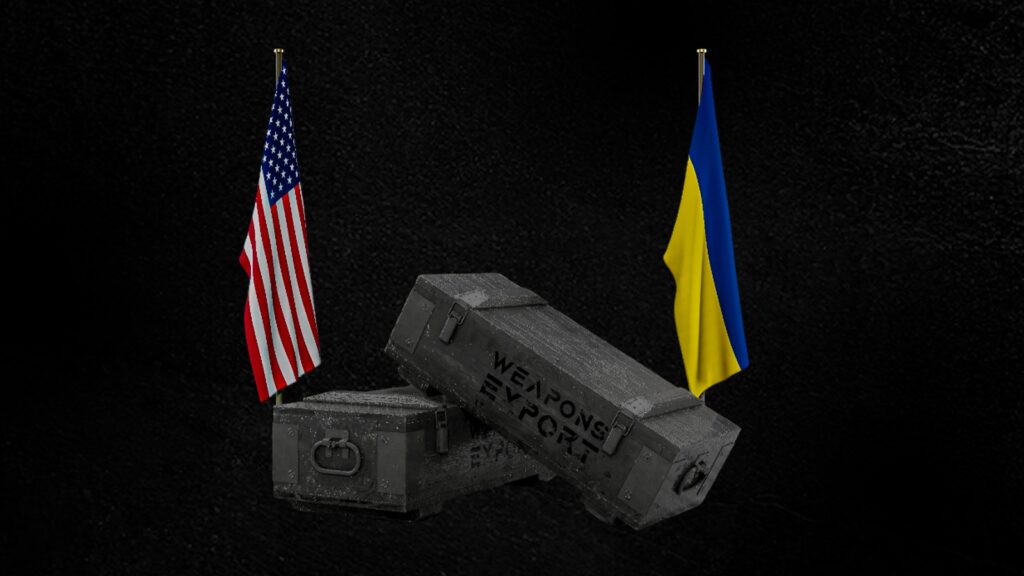US President Joe Biden pledged to dispatch fresh weaponry to Ukraine imminently, alongside the signing of an aid package worth $61 billion aimed at bolstering Kyiv’s defense against Russia.
On Wednesday, Congress greenlit the long-awaited legislation, which also includes a provision to prohibit TikTok in the United States unless the popular social media platform severs ties with its Chinese parent company.
Following approval by the Republican-led House of Representatives, which included the aid as part of a broader $95 billion assistance package for allies like Israel and Taiwan, the Democratic-controlled Senate swiftly followed suit. The bill passed with bipartisan support in a 79-18 vote.
Biden announced his intention to sign the bill into law and communicate directly with the American public upon its arrival at his desk, aiming to expedite the delivery of weapons and equipment to Ukraine within the current week.
The bill’s passage signifies the allocation of vital humanitarian aid to Gaza, Sudan, and Haiti, following months of contentious debate among lawmakers regarding support for Ukraine’s defense.
Despite a previous passage of a similar aid package in the Senate back in February, its progress was impeded in the House due to demands from Republican Speaker Mike Johnson, influenced by calls from former President Donald Trump and his allies, before a sudden reversal.
Expressing gratitude, Ukrainian President Volodymyr Zelensky, who had advocated for fresh aid during his visit to Washington in December, promptly thanked US lawmakers for their efforts. He conveyed his appreciation via social media, emphasizing the importance of subsequent military aid reflecting the determination demonstrated in negotiations.
Biden emphasized the significance of Ukraine’s long-range capabilities, artillery, and air defense systems in hastening the restoration of peace.
He praised the bill’s approval as a demonstration of America’s steadfast support for democracy and freedom, contrasting it against tyranny and oppression. Senate Majority Leader Chuck Schumer echoed this sentiment, affirming that the United States would not abandon Ukraine.
In addition to military aid, the bill grants Biden the authority to seize and sell Russian assets, with proceeds allocated to Kyiv for reconstruction efforts—an initiative endorsed by other G7 nations.
Despite being Ukraine’s primary military ally against Russia, Congress had not greenlit substantial funding for over a year and a half, prompting concerns as the presidential election approaches, with Biden expected to face Trump once more.
The legislation also targets TikTok, mandating that the platform separate from its Chinese parent company ByteDance. Failure to comply could result in a nationwide ban in the United States, where TikTok boasts approximately 170 million users.
Concerns have been raised by Western officials regarding TikTok’s popularity among youth, alleging its ties to Beijing and its potential for spreading propaganda and collecting personal data, although these allegations have been refuted by the company.
TikTok and its supporters have criticized the proposed ban, arguing that it would infringe upon freedom of speech rights.
In addition to the aid for Ukraine, the new assistance package allocates $13 billion for Israel amid its conflict with the Palestinian militant group Hamas.
Israel’s Foreign Minister, Israel Katz, expressed gratitude to the US Senate for endorsing military aid. He conveyed on social media platform X that this approval “underscores the robustness of our alliance and sends a powerful message to our adversaries.”
This endorsement from the US coincides with the 201st day of the ongoing conflict in Gaza. The conflict began following an attack by Hamas militants on Israel on October 7, resulting in the deaths of 1,170 individuals, predominantly civilians.
Subsequently, Israel has pledged to eradicate Hamas and has launched a relentless offensive against the militant group governing the Gaza Strip. According to the health ministry of the Palestinian territory, 34,183 individuals, mostly women and children, have lost their lives in Israel’s military campaign in Gaza.
The approved US aid package includes over $9 billion designated for humanitarian aid in Gaza and other regions, along with $8 billion in military assistance for Taiwan amid tensions with China.
A spokesperson from the Pentagon informed reporters on Tuesday that fresh aid could be dispatched to Ukraine “within days.” Ukraine’s military is grappling with a critical shortage of weaponry and personnel as it faces ongoing pressure from the east, with frontline conditions expected to deteriorate in the coming weeks.
Kyrylo Budanov, head of Ukrainian intelligence, anticipates a “rather difficult situation” emerging in mid-May.
The debate surrounding aid to Ukraine has underscored significant divisions between Democrats and Republicans in Congress, while also revealing deep internal disagreements within the conservative movement leading up to the November elections.
While certain hardline Republicans have expressed reservations about providing funds abroad, President Biden and the Democrats portray aid to Ukraine as an investment in US security against Russian aggression.



